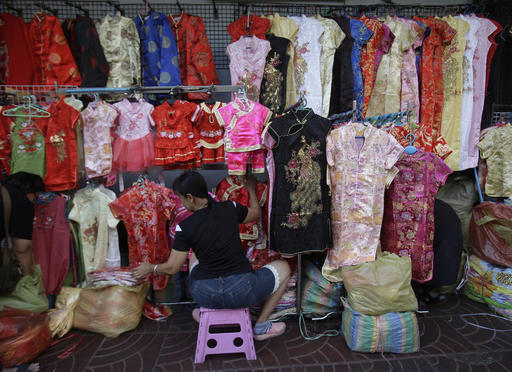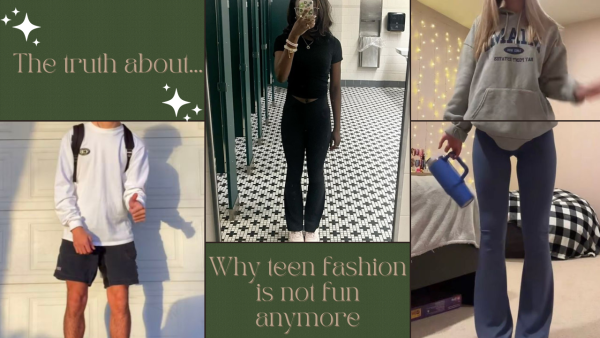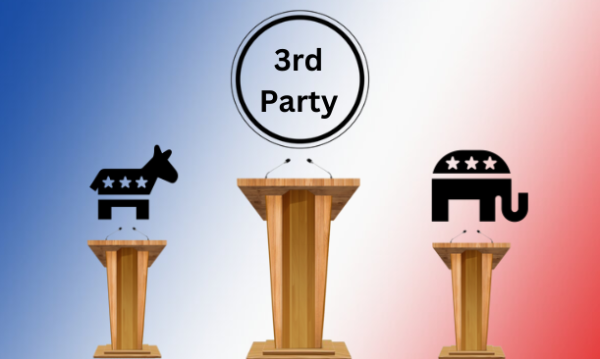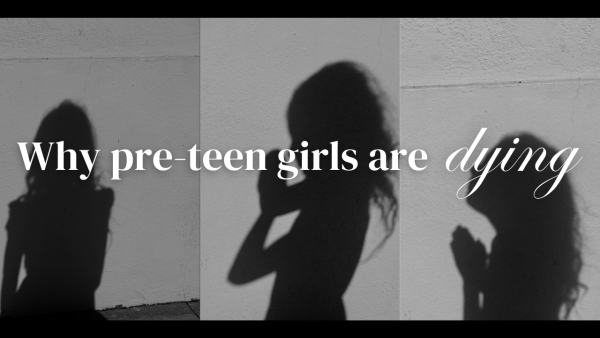EDITORIAL: The difference between cultural appropriation and cultural appreciation

A vendor arranges traditional Chinese dresses or “qipao” in Mandarin on a market street in Bangkok, Thailand, Thursday, Jan. 26, 2017. Chinese New Year falls on Jan. 28 this year, marking the start of the Year of Rooster. (AP Photo/Sakchai Lalit)
Issues with cultural appropriation are omnipresent in this world of activism and racism. What else is omnipresent is cultural appreciation, both topics which can easily be misconstrued.
Recently, a high school student by the name of Keziah Daum was shamed on Twitter for her apparent cultural appropriation. Daum posted pictures in her prom dress, a qipao, a traditional Chinese outfit. Haters called her a racist, stating that “[their] culture is NOT [her] prom dress.” Many took to Twitter to take sides, deciphering if Daum, who isn’t Chinese is a racist or mere admirer of cultures.
The issue with today is that people jump to conclusions when they see Caucasians wear or say something culturally involved. It is cultural appreciation if you have religious and ethnic tolerance- being respectful to everyone and simply wanting to admire the beauty of other cultures. Cultural appropriation is the targeting and attacking of other cultures through jokes and insults.
As someone who has a different ethnic background, I would not be offended if one of my caucasian friends decided to wear an Indian outfit. I would think it is admirable how open to other cultures and traditions they are because that is how the world gets better. People have to learn about other cultures and be open to the differences that make up this world. I would be offended if someone painted their skin brown to look Indian because that is a negative portrayal of ethnic diversity. There is a big difference between both cultural appropriation and discrimination.
“I don’t think cultural appropriation is a problem until the person who’s doing it has shown blatant disrespect or racism toward that culture in the past, present, or future. For example, I think wearing cornrows is fine as long as the person doesn’t go around saying the N word,” explained North Penn High School senior Nafisa Haque.
“I don’t think it is wrong for someone to wear clothing from another culture… As long as they are respectful, people should be able to wear what they want,” added fellow senior Rachel Wiener.
Everyone has a right to an opinion, and if you get offended by something, you have a right to explain your feelings, NOT call someone a racist without reason. Growing up as a minority shapes everyone, we get asked if we know English, go to our places of worship, and so many other things that seem odd to people. But when someone shows a genuine interest in your faith, culture, traditions, etc., don’t shoot down their honest curiosity. The world becomes more accepting if you let them learn about your life.
Cultural appropriation is a real issue, but it should never be misconstrued for being respectful and curious of other cultures and lifestyles. Curiosity makes the world better, anything mocking that is entirely backwards.












Michael Cole • May 8, 2018 at 4:23 pm
I totally agree! Great article!
Mrs. Hrinyak • May 8, 2018 at 3:27 pm
Great article. I totally agree. I love learning about and experiencing other cultures!